Demo Night Market
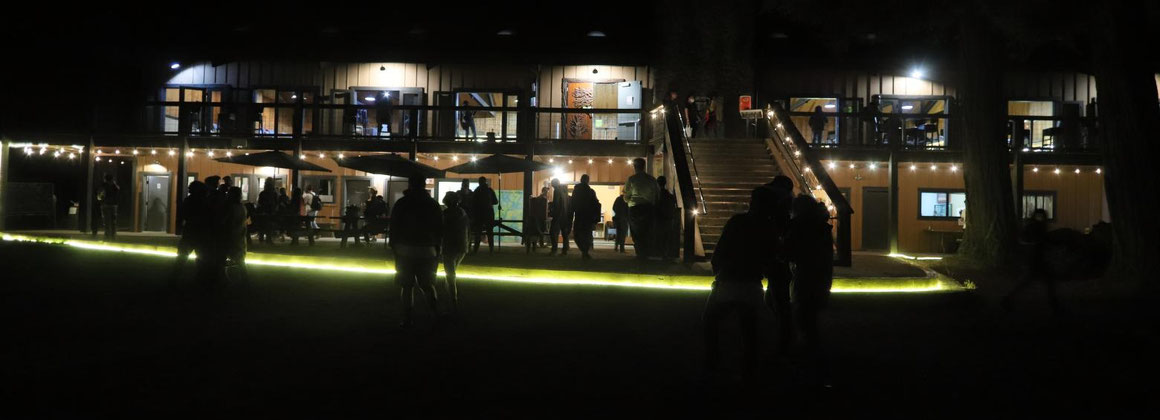
This is a demonstration of a workflow developed by Starling Lab (source), using the Guardian Project's Proofmode (source) app. With this workflow, users can try capturing cryptographically secured photos, and uploading them into the Starling Integrity Pipeline, where we add the media and metadata to Authenticated Attributes, an append-only database that binds each piece of metadata as a signed, timestamped 'attribute' to a content-identifier of a piece of media. See how, using the CLI tool developed by Starling Lab, we can include C2PA manifests, examine Proofmode bundles, register an asset on-chain, and export Verifiable Credentials.
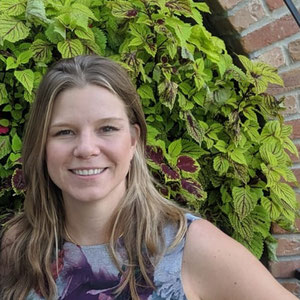

Lindsay is the Product Lead at Starling Lab for Data Integrity. Her work at Starling Lab involves executing and implementing the capture, store, verify technology for authenticity and provenance prototypes. She works on product development and implementations with partners in history, law, and journalism. She has worked across a wide range of emerging technologies. She has a broad spectrum of expertise in platform development, programming languages, networks and operating systems, test automation, web3, and technical enablement and training, with a foundation in mathematics and computer education.
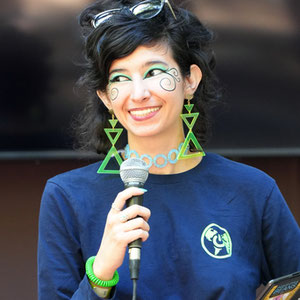

Jack Fox Keen is a first year PhD student in the Department of Computer Science and Engineering and UC Santa Cruz, in the Artificial Intelligence Explainability and Accountability (AIEA) Lab under the tutelage of Dr. Leilani H. Gilpin. Their research focuses on explainable artificial intelligence for psychological and sociological applications, such as suicide prevention and human rights activism. They hold a bachelors of science from Florida Student University for both Scientific Computing and Biomathematics. As an activist, Jack Fox Keen has been involved with a variety of organizations, including Science for the People, Food Not Bombs, and the Tech Workers Coalition. They have also worked for the Guardian Project for 3 years as the data scientist for ProofMode, working with the Content Authenticity Initiative (CAI) and other organizations on verifiable photo provenance.
Videos from the summit:
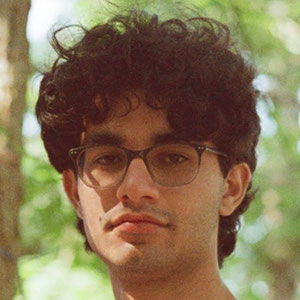

Cole is a software developer interested in decentralization, networking, and protocols, currently employed at the Hypha Worker Co-operative.
In the past he has authored various open source projects, and worked on building a mesh network in Toronto.


Lindsay is the Product Lead at Starling Lab for Data Integrity. Her work at Starling Lab involves executing and implementing the capture, store, verify technology for authenticity and provenance prototypes. She works on product development and implementations with partners in history, law, and journalism. She has worked across a wide range of emerging technologies. She has a broad spectrum of expertise in platform development, programming languages, networks and operating systems, test automation, web3, and technical enablement and training, with a foundation in mathematics and computer education.


Jack Fox Keen is a first year PhD student in the Department of Computer Science and Engineering and UC Santa Cruz, in the Artificial Intelligence Explainability and Accountability (AIEA) Lab under the tutelage of Dr. Leilani H. Gilpin. Their research focuses on explainable artificial intelligence for psychological and sociological applications, such as suicide prevention and human rights activism. They hold a bachelors of science from Florida Student University for both Scientific Computing and Biomathematics. As an activist, Jack Fox Keen has been involved with a variety of organizations, including Science for the People, Food Not Bombs, and the Tech Workers Coalition. They have also worked for the Guardian Project for 3 years as the data scientist for ProofMode, working with the Content Authenticity Initiative (CAI) and other organizations on verifiable photo provenance.
Videos from the summit:


Cole is a software developer interested in decentralization, networking, and protocols, currently employed at the Hypha Worker Co-operative.
In the past he has authored various open source projects, and worked on building a mesh network in Toronto.
Beyond Flatness is a method specifically designed to counter large-scale censorship of text, images, and videos by big data and artificial intelligence rather than human review. It transforms textual information into artistic images through artistic processing. These images utilize the physical space of the real world to counter optical character recognition (OCR), revealing hidden messages only at specific angles, ensuring the privacy and security of the information.
By embedding textual information into meticulously designed artistic images, Beyond Flatness makes this information invisible in conventional digital environments, only decipherable from specific perspectives in the physical world. This method differs from traditional encryption as it relies on digital technology and leverages physical space characteristics, creating a new strategy to combat AI censorship.
Beyond Flatness provides an innovative solution, enabling ordinary users to safely and publicly transmit information even in highly censored environments. Through this artistic encryption method, information can freely circulate on social media platforms without being detected by AI censorship systems. This protects user privacy and grants greater freedom for information dissemination.
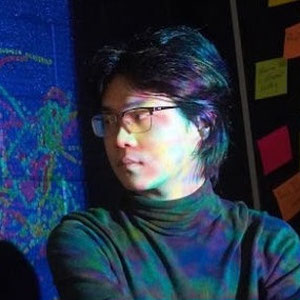

Ziye Zhang is a multimedia artist and game designer in New York. He excels at creating electronic and installation art that engages audiences through game mechanics and interactive logic. He completed his undergraduate studies at SUNY Stony Brook and a master's degree in the Integrated Digital Media program from New York University.
As a Gen-Z artist, Ziye leverages diverse digital tools and mediums to delve into contemporary culture and the nuances of social life in the digital era, highlighting the unique challenges encountered by the Digital Native Community. Additionally, Ziye has a high level of expertise in emerging technologies in VR, virtual production, and motion capture.
Ziye also uses his game design knowledge to encourage people to solve social issues through games and hosts board game design workshops at MIT, NYU, etc. In addition, Ziye is an invited guest speaker by Hasbro China.
Now he is conducting field research and studies for his new works, which will discuss individual consciousness neglected on the internet through interactive installations, continuing to refine my theoretical research and artistic language.


Ziye Zhang is a multimedia artist and game designer in New York. He excels at creating electronic and installation art that engages audiences through game mechanics and interactive logic. He completed his undergraduate studies at SUNY Stony Brook and a master's degree in the Integrated Digital Media program from New York University.
As a Gen-Z artist, Ziye leverages diverse digital tools and mediums to delve into contemporary culture and the nuances of social life in the digital era, highlighting the unique challenges encountered by the Digital Native Community. Additionally, Ziye has a high level of expertise in emerging technologies in VR, virtual production, and motion capture.
Ziye also uses his game design knowledge to encourage people to solve social issues through games and hosts board game design workshops at MIT, NYU, etc. In addition, Ziye is an invited guest speaker by Hasbro China.
Now he is conducting field research and studies for his new works, which will discuss individual consciousness neglected on the internet through interactive installations, continuing to refine my theoretical research and artistic language.
BraidFS (source) is like a local-first Google Docs + Dropbox. It synchronizes files on your computer with webpages, and makes them all collaboratively editable—eliminating the distinction between the web, your local filesystem, and your friends' filesystems.
Use it instead of Git, Google Docs, and Dropbox. Update your website without in-between steps. Collaboratively edit shared documents without Google. Synchronize notes across multiple computers. Use your favorite editor on your own computer to read and write Braid-HTTP data anywhere, at any web URL.


Computer Scientist and Psychologist at Invisible College, Berkeley.
Co-founder of Braid, Invisible College Berkeley, Cheeseburger Therapy, Bitcoin Classic.


Computer Scientist and Psychologist at Invisible College, Berkeley.
Co-founder of Braid, Invisible College Berkeley, Cheeseburger Therapy, Bitcoin Classic.
Cofacts (source) is a fact checking chatbot, if you forward disinformation in a closing chatroom, it will reply with a fact check reply and show the reason why.
Cofacts(which means Code for Facts & Collaborative Facts checking, while s means plurality) is an AI debunking chatbot; is a civic tech community project; we connect engineers and civics, and conduct great technology tools for disinformation.We organize a crowd source community to do fact checking and engineering development to train a fact-checking chatbot. For instance, we added a generation AI function like ChatGPT in Cofacts bot to teach media literacy as well.
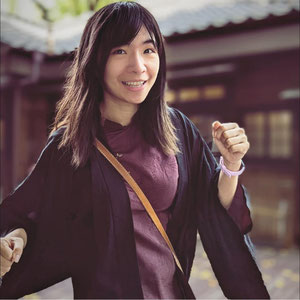

Billion is a Taiwanese. She is Cofacts cofounder. She started this project in 2016 and she has been advocating for marriage equality and open freedom, dedicating herself to connecting different communities and providing empowerment courses to combat disinformation. She has previously visited PolitiFact in the United States as a fellowship. She has exchanged and connected contributors from different countries, to collaborate on clarifying information. She manages a community working on OSINT fact-checking skills and media literacy. She likes cakes and cookies.


Billion is a Taiwanese. She is Cofacts cofounder. She started this project in 2016 and she has been advocating for marriage equality and open freedom, dedicating herself to connecting different communities and providing empowerment courses to combat disinformation. She has previously visited PolitiFact in the United States as a fellowship. She has exchanged and connected contributors from different countries, to collaborate on clarifying information. She manages a community working on OSINT fact-checking skills and media literacy. She likes cakes and cookies.
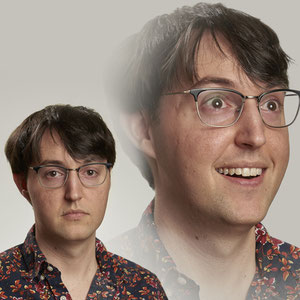

Evan Hahn is a back-end developer at Awana Digital (FKA Digital Democracy), building the infrastructure powering CoMapeo. He's passionate about using software to shift the balance of power. Prior to his work at Awana Digital, Evan worked for Signal building free, private, and secure messaging software. Evan is originally from Silicon Valley and now lives in beautiful Chicago.


Evan Hahn is a back-end developer at Awana Digital (FKA Digital Democracy), building the infrastructure powering CoMapeo. He's passionate about using software to shift the balance of power. Prior to his work at Awana Digital, Evan worked for Signal building free, private, and secure messaging software. Evan is originally from Silicon Valley and now lives in beautiful Chicago.
DeepAI - collection of fun generative consumer tools, image generators, editors, video & music generators, chatbots and much more.
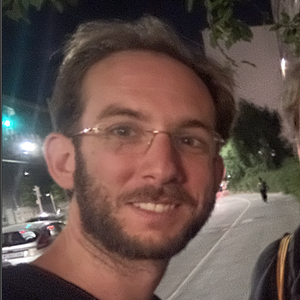

Founder at deepai.org. Building AI tools since 2018.


Founder at deepai.org. Building AI tools since 2018.
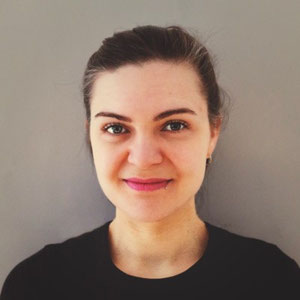

As a social scientist & software programmer Marie is interested in community building, and the intersections of technologies, societies and sexual health.
She is the co-founder of drip. period & fertility app and part of the Heart of Code, a feminist hackspace in Berlin/Germany.


As a social scientist & software programmer Marie is interested in community building, and the intersections of technologies, societies and sexual health.
She is the co-founder of drip. period & fertility app and part of the Heart of Code, a feminist hackspace in Berlin/Germany.
Endo - Distributed Object Capability Wallet, Chat app, and programming platform. Make and safely share apps that are p2p and interoperable.


try make future less bad via computers + humans + cryptography


try make future less bad via computers + humans + cryptography
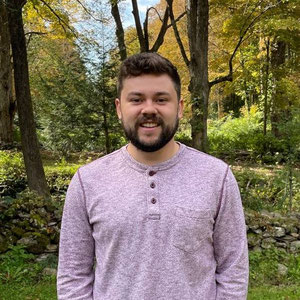

Paul Weidner is a member of the team building FarmOS and a contributor to various other open source projects. Before starting his career in software development Paul worked on small farms and research farms in the Pacific Northwest. Paul enjoys engaging in open source and agricultural communities and is passionate about building tools to empower local communities.


Paul Weidner is a member of the team building FarmOS and a contributor to various other open source projects. Before starting his career in software development Paul worked on small farms and research farms in the Pacific Northwest. Paul enjoys engaging in open source and agricultural communities and is passionate about building tools to empower local communities.
A machine (hardware and software) to “self mine” material to the Filecoin network as the Internet Archive's own Filecoin Storage Provider


Mark Graham has created and managed innovative online products and services since 1984. As Director of the Wayback Machine he is responsible for capturing, preserving and helping people discover and use, more than 1 billion new web captures each week. Mark was most recently Senior Vice President with NBC News where he managed several business units including GardenWeb and Stringwire, a live, mobile, video platform for collaborative citizen reporting. Mark was Senior Vice President of Technology with iVillage, an early Internet company that focused on women and community. He co-founded Rojo Networks, one of the first large-scale feed aggregators and personalized blog readers (sold to sixapart.)
In the early days of the net he managed technology and business development at The WELL and lead their effort to build the first web-based interface for online forums, and also helped bring the pre-web Internet to millions of people by running AOL's Gopher project as part of their Internet Center. He managed technology for the pioneering US-Soviet Sovam Teleport email service and co-founded and managed PeaceNet, one of the first online communities for progressive social change, and later IGC.org, one of the world first ISPs. He also co-founded the global NGO, APC.org. Mark's early training and experience with computer-mediated communications was acquired while he served in the US Air Force, spending more than 3 years working at the Air Force Data Services Center at the Pentagon. Mark's nonprofit work includes volunteering with the open education library http://oercommons.org and as a board member of http://openrecoverysf.org.
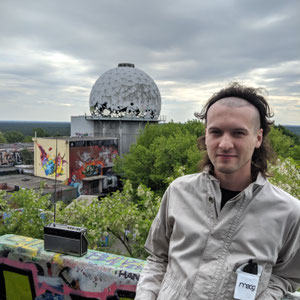

Arkadiy has worked on creating sustainable communities on the web for the past decade. He is currently the Decentralized Tech lead at the Internet Archive and has served as Collaborations Coordinator with Protocol Labs and advisor to Ampled, an artist support co-operative. Previously, he was the CTO at Mediachain Labs (acquired by Spotify in spring 2017) and worked on The Hype Machine, an influential music blog aggregator.


Mark Graham has created and managed innovative online products and services since 1984. As Director of the Wayback Machine he is responsible for capturing, preserving and helping people discover and use, more than 1 billion new web captures each week. Mark was most recently Senior Vice President with NBC News where he managed several business units including GardenWeb and Stringwire, a live, mobile, video platform for collaborative citizen reporting. Mark was Senior Vice President of Technology with iVillage, an early Internet company that focused on women and community. He co-founded Rojo Networks, one of the first large-scale feed aggregators and personalized blog readers (sold to sixapart.)
In the early days of the net he managed technology and business development at The WELL and lead their effort to build the first web-based interface for online forums, and also helped bring the pre-web Internet to millions of people by running AOL's Gopher project as part of their Internet Center. He managed technology for the pioneering US-Soviet Sovam Teleport email service and co-founded and managed PeaceNet, one of the first online communities for progressive social change, and later IGC.org, one of the world first ISPs. He also co-founded the global NGO, APC.org. Mark's early training and experience with computer-mediated communications was acquired while he served in the US Air Force, spending more than 3 years working at the Air Force Data Services Center at the Pentagon. Mark's nonprofit work includes volunteering with the open education library http://oercommons.org and as a board member of http://openrecoverysf.org.


Arkadiy has worked on creating sustainable communities on the web for the past decade. He is currently the Decentralized Tech lead at the Internet Archive and has served as Collaborations Coordinator with Protocol Labs and advisor to Ampled, an artist support co-operative. Previously, he was the CTO at Mediachain Labs (acquired by Spotify in spring 2017) and worked on The Hype Machine, an influential music blog aggregator.
GOAT - We're many organizations working together to build an open source ag tech ecosystem of hardware and software tools. This includes FarmOS, SoilStack, SurveyStack, Open Food Network, LiteFarm, and others!
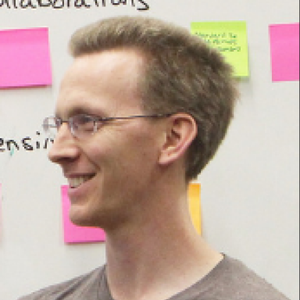

I'm an open technology advocate and cofounder of Our Sci. Our goal is to support community-driven science through software, hardware, and training. I've worked on previous open science projects in both hardware (MultispeQ), software (PhotosynQ), and chemical engineering (in the DIY Biodiesel movement way back in the day). I also help organize open source communities, like the Gathering for Open Science Hardware and the Gathering for Open Ag Tech.


Paul Weidner is a member of the team building FarmOS and a contributor to various other open source projects. Before starting his career in software development Paul worked on small farms and research farms in the Pacific Northwest. Paul enjoys engaging in open source and agricultural communities and is passionate about building tools to empower local communities.
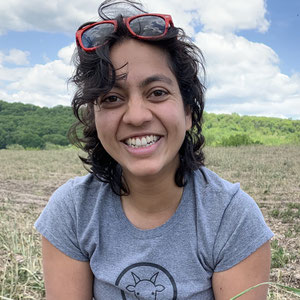

I’m Ankita (she/her) and I’m into food, farms, nature, design, and tech! I’m an assistant professor at Purdue University, where I’ve run the Agricultural Informatics Lab since 2019. We practice community-driven research, participatory design, and open-source software engineering to support increased resilience in food and farming systems. I grew up in Kenya, Papua New Guinea, Australia, and Fiji, and appreciate that resilient communities and ecologies are both local and interconnected. I came to the U.S. looking to learn more about human-computer interaction to support sustainable development and open knowledge. During graduate school in California and my time working at USDA’s Ag Research Service in Maryland, I found motivation and grounding for my work in agriculture. My areas of expertise now includes: digital tools for small farms, decision support tools for regenerative agriculture, human-centered and ecologically-oriented design, and community-led data+tech stewardship. I advocate for responsible, accessible, and inclusive digital tools in partnership with farmers, researchers, coders, and allies via the Gathering for Open Ag Tech.


I'm an open technology advocate and cofounder of Our Sci. Our goal is to support community-driven science through software, hardware, and training. I've worked on previous open science projects in both hardware (MultispeQ), software (PhotosynQ), and chemical engineering (in the DIY Biodiesel movement way back in the day). I also help organize open source communities, like the Gathering for Open Science Hardware and the Gathering for Open Ag Tech.


Paul Weidner is a member of the team building FarmOS and a contributor to various other open source projects. Before starting his career in software development Paul worked on small farms and research farms in the Pacific Northwest. Paul enjoys engaging in open source and agricultural communities and is passionate about building tools to empower local communities.


I’m Ankita (she/her) and I’m into food, farms, nature, design, and tech! I’m an assistant professor at Purdue University, where I’ve run the Agricultural Informatics Lab since 2019. We practice community-driven research, participatory design, and open-source software engineering to support increased resilience in food and farming systems. I grew up in Kenya, Papua New Guinea, Australia, and Fiji, and appreciate that resilient communities and ecologies are both local and interconnected. I came to the U.S. looking to learn more about human-computer interaction to support sustainable development and open knowledge. During graduate school in California and my time working at USDA’s Ag Research Service in Maryland, I found motivation and grounding for my work in agriculture. My areas of expertise now includes: digital tools for small farms, decision support tools for regenerative agriculture, human-centered and ecologically-oriented design, and community-led data+tech stewardship. I advocate for responsible, accessible, and inclusive digital tools in partnership with farmers, researchers, coders, and allies via the Gathering for Open Ag Tech.
Group Income (source)–Tool for communities that want to provide their members with a private and secure decentralized do-it-yourself financial safety net!
It's also a free and open source proof-of-concept for an entirely new way of creating online software.
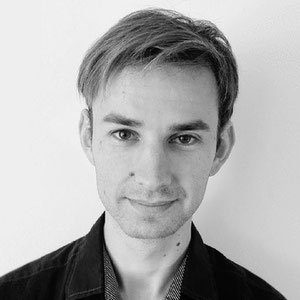

Greg Slepak is the Chief Turtle at the okTurtles Foundation, a 501(c)(3) non-profit focused on supporting beneficial decentralization technologies. His focus is on helping ordinary individuals stay safe and secure, both digitally and financially. You can find him on the Fediverse and twitter.


Andrea is acting secretary of the okTurtles Foundation, and also an aspiring software developer with interests in finding solutions to social problems.


Greg Slepak is the Chief Turtle at the okTurtles Foundation, a 501(c)(3) non-profit focused on supporting beneficial decentralization technologies. His focus is on helping ordinary individuals stay safe and secure, both digitally and financially. You can find him on the Fediverse and twitter.


Andrea is acting secretary of the okTurtles Foundation, and also an aspiring software developer with interests in finding solutions to social problems.
IdentiKey is made to empower everyone to enter the digital space on their own terms, to own their identity and data. It does this through providing cryptographic key management and decentralized public key infrastructure that is beautiful, usable, and secure. At DWeb, we'll demonstrate the collaboratively-owned community graph.
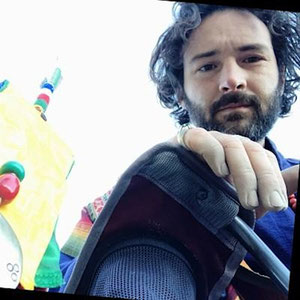

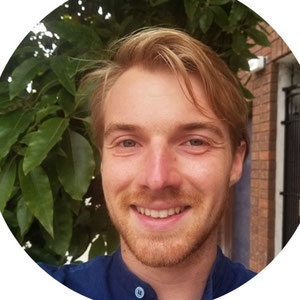

Colin Rinta Stewart is an agriculturalist of Finnish, Karelian, Scottish, Irish, and English descent who grew up in the Salish Sea. After working for Washington State University as an agricultural extension agent, growing organic grains, and deep diving into Web3, he founded a farmer-owned marketplace for Certified Organic agriculture called Market.Organic. Colin now resides in the Bay Area, where he helps organizations and technology convert to be employee-and-community owned.




Colin Rinta Stewart is an agriculturalist of Finnish, Karelian, Scottish, Irish, and English descent who grew up in the Salish Sea. After working for Washington State University as an agricultural extension agent, growing organic grains, and deep diving into Web3, he founded a farmer-owned marketplace for Certified Organic agriculture called Market.Organic. Colin now resides in the Bay Area, where he helps organizations and technology convert to be employee-and-community owned.
Internet Archive has been working on providing a dedicated onion service to allow private and unrestricted access to the collections, including from politically repressive locales. In this presentation, they’ll cover some of the challenges of running onion services, the advantages over a normal tor circuit using an exit node, and preview some potential future work.


Arkadiy has worked on creating sustainable communities on the web for the past decade. He is currently the Decentralized Tech lead at the Internet Archive and has served as Collaborations Coordinator with Protocol Labs and advisor to Ampled, an artist support co-operative. Previously, he was the CTO at Mediachain Labs (acquired by Spotify in spring 2017) and worked on The Hype Machine, an influential music blog aggregator.
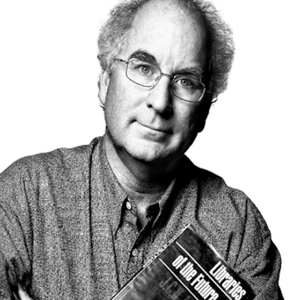

A passionate advocate for public Internet access and a successful entrepreneur, Brewster Kahle has spent his career intent on a singular focus: providing Universal Access to All Knowledge. He is the founder and Digital Librarian of the Internet Archive, one of the largest libraries in the world. Soon after graduating from the Massachusetts Institute of Technology where he studied artificial intelligence, Kahle helped found the company Thinking Machines, a parallel supercomputer maker. In 1989, Kahle created the Internet's first publishing system called Wide Area Information Server (WAIS), later selling the company to AOL. In 1996, Kahle co-founded Alexa Internet, which helps catalog the Web, selling it to Amazon.com in 1999. The Internet Archive, which he founded in 1996, now preserves 90+ petabytes of data - the books, Web pages, music, television, and software that form our cultural heritage, working with more than 1000 library and university partners to create a digital library, accessible to all.
He first called builders to "Lock the Web Open" using decentralized technologies in 2015, and continues to write about, experiment, cajole, and cheer on those creating decentralized systems we can trust.
Videos from the summit:


Arkadiy has worked on creating sustainable communities on the web for the past decade. He is currently the Decentralized Tech lead at the Internet Archive and has served as Collaborations Coordinator with Protocol Labs and advisor to Ampled, an artist support co-operative. Previously, he was the CTO at Mediachain Labs (acquired by Spotify in spring 2017) and worked on The Hype Machine, an influential music blog aggregator.


A passionate advocate for public Internet access and a successful entrepreneur, Brewster Kahle has spent his career intent on a singular focus: providing Universal Access to All Knowledge. He is the founder and Digital Librarian of the Internet Archive, one of the largest libraries in the world. Soon after graduating from the Massachusetts Institute of Technology where he studied artificial intelligence, Kahle helped found the company Thinking Machines, a parallel supercomputer maker. In 1989, Kahle created the Internet's first publishing system called Wide Area Information Server (WAIS), later selling the company to AOL. In 1996, Kahle co-founded Alexa Internet, which helps catalog the Web, selling it to Amazon.com in 1999. The Internet Archive, which he founded in 1996, now preserves 90+ petabytes of data - the books, Web pages, music, television, and software that form our cultural heritage, working with more than 1000 library and university partners to create a digital library, accessible to all.
He first called builders to "Lock the Web Open" using decentralized technologies in 2015, and continues to write about, experiment, cajole, and cheer on those creating decentralized systems we can trust.
Videos from the summit:
LinkedClaims allows anyone to make a claim or attestation - and have someone else validate it, signed with their DID (decentralized identifier). It makes it easy to visualize trust in a social graph and generate evidence based reports. And every claim is published to the decentralized Ceramic Network where they can be viewed and consumed by other users of the ecosystem.
Github
Organization: LinkedTrust
Bottom-up public benefit corporation that enables trust in a social graph, compatible with open source projects such as Anoncreds and Verifiable Credentials. We also work in specific domain areas like worker credentials with the US Chambers of Commerce Foundation and supply chain regulatory compliance, and with Candid.org!
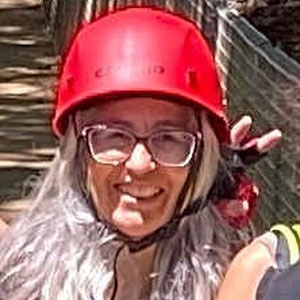

Golda is focused on the intersection of code and society, from tools for shared governance to linked trust claims to keep out bad actors. She has been a software engineer (or otherwise a hacker/debugger type) for over 30 years, with experience ranging from Assembly language NetBIOS layer at Artisoft to the Webglimpse search engine, from industrial stremgh Perl at Oracle to Python data pipelines at Factual, more recently fighting organized attackers on the Risk team at Postmates and keeping the pipes running on Uber platform. Now at home at 3box, she supports the infrastructure for Ceramic development.
On the side Golda helps run the dSocialCommons.org community that emerged from the Bluesky launch, advises and supports the startup WhatsCookin.us for building community through realtime events, and contributes to projects at Cooperation.org for developing tech to fight bad actors and enable trust and cooperation. Decentralized Linked Trust to save us all!
Videos from the summit:


Golda is focused on the intersection of code and society, from tools for shared governance to linked trust claims to keep out bad actors. She has been a software engineer (or otherwise a hacker/debugger type) for over 30 years, with experience ranging from Assembly language NetBIOS layer at Artisoft to the Webglimpse search engine, from industrial stremgh Perl at Oracle to Python data pipelines at Factual, more recently fighting organized attackers on the Risk team at Postmates and keeping the pipes running on Uber platform. Now at home at 3box, she supports the infrastructure for Ceramic development.
On the side Golda helps run the dSocialCommons.org community that emerged from the Bluesky launch, advises and supports the startup WhatsCookin.us for building community through realtime events, and contributes to projects at Cooperation.org for developing tech to fight bad actors and enable trust and cooperation. Decentralized Linked Trust to save us all!
Videos from the summit:
"Meli" (source)is a collaborative database for sighting, mapping and categorisation of Meliponini bee species in the Brazilian Amazon. This project is a collaboration between p2panda and Meli. The app runs a full p2panda node and allows decentralised and offline-first collaboration among the community, it is developed with Flutter and uses the p2panda SDK for its p2p functionalities.
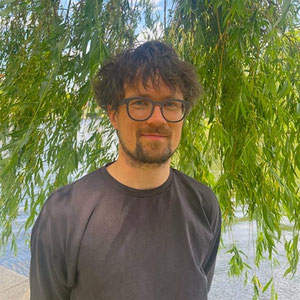

Andreas Dzialocha is an electric bass player, producer, composer and developer. His work consists of both digital and physical environments, spaces, festivals, software or platforms for participants and listeners. The computer itself serves as an artistical, political, social or philosophical medium, dealing with computer culture, machine learning, platform politics or decentralized networks.
He is member of the band Sun Kit, member of the berlin-based community computing space offline, co-founder and core-contributor of the local-first protocol p2panda, co-founder of the music label Hyperdelia and the intermedial score platform Y-E-S. Sometimes he teaches artistic computer practices, recently at UdK Berlin. He studied art history, musicology, media philosophy and computer science in Berlin where he also lives and works.


Andreas Dzialocha is an electric bass player, producer, composer and developer. His work consists of both digital and physical environments, spaces, festivals, software or platforms for participants and listeners. The computer itself serves as an artistical, political, social or philosophical medium, dealing with computer culture, machine learning, platform politics or decentralized networks.
He is member of the band Sun Kit, member of the berlin-based community computing space offline, co-founder and core-contributor of the local-first protocol p2panda, co-founder of the music label Hyperdelia and the intermedial score platform Y-E-S. Sometimes he teaches artistic computer practices, recently at UdK Berlin. He studied art history, musicology, media philosophy and computer science in Berlin where he also lives and works.
Moss (source) is for any group of people that want to create custom collaboration spaces which don't require any centralized infrastructure.
You can pick the fit-for-purpose tooling that's appropriate for your group. Developers and build tools to add to the tool library thus creating ecosystem network benefits effect.
Current tools already include: full-featured chat; the standard office-style suite (doc editing, spread-sheets, files storage, drawing); video conferencing; kan-ban boards; air-table-like databases; governance alignment tools; and more.
And, thanks to Holochain, all of this is server-less and completely private to just your group.
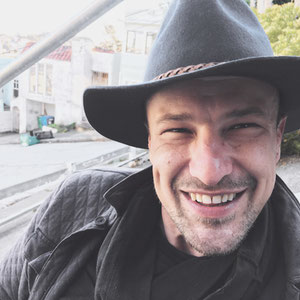

I am a multidisciplinary designer, developer, artist, and musician. I am a founder and steward of Terran Collective. I currently lead design at Hylo and help with design at Holochain.
I am a student of how things are made, and a skilled practitioner of many crafts. I am committed to offering my gifts in service to a world that works for all.
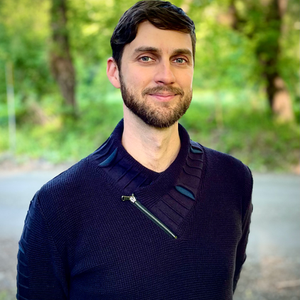

Tibet Sprague is a systems entrepreneur, communitarian technologist, and passionate evangelist of the more beautiful world our hearts know is possible. He is founder and core steward of the Terran Collective, which activates and amplifies cooperation among people working to regenerate our communities and our planet. Terran does this by building systems and tools that foster trust and collaboration, and weaving together the local regenerative community in their home Bay Area bioregion. Tibet is lead developer for Terran's main project Hylo - the prosocial coordination platform for purpose driven groups. He also co-stewards the Collaborative Technology Alliance, facilitating collaboration and interoperability among humane social technologists and platforms, works with OpenTEAM on creating a more open, responsible AgTech ecosystem, and is currently building his first P2P social apps with Holochain.
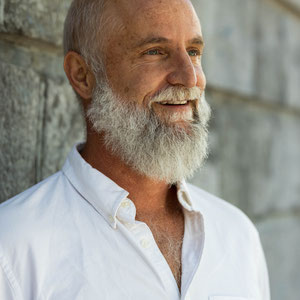

Eric Harris-Braun co-founded Holochain, Holo & the MetaCurrency project, each of which focus on a different layer of technical infrastructure for embodying a new economy. Holochain delivers a massively scalable framework for truly distributed web applications, which Holo uses to provide HoloFuel a value-stable currency backed by the productive capacity of web hosting, while the MetaCurrency project delves deep into the post-monetary currency designs to foster a more thrivable world.


I am a multidisciplinary designer, developer, artist, and musician. I am a founder and steward of Terran Collective. I currently lead design at Hylo and help with design at Holochain.
I am a student of how things are made, and a skilled practitioner of many crafts. I am committed to offering my gifts in service to a world that works for all.


Tibet Sprague is a systems entrepreneur, communitarian technologist, and passionate evangelist of the more beautiful world our hearts know is possible. He is founder and core steward of the Terran Collective, which activates and amplifies cooperation among people working to regenerate our communities and our planet. Terran does this by building systems and tools that foster trust and collaboration, and weaving together the local regenerative community in their home Bay Area bioregion. Tibet is lead developer for Terran's main project Hylo - the prosocial coordination platform for purpose driven groups. He also co-stewards the Collaborative Technology Alliance, facilitating collaboration and interoperability among humane social technologists and platforms, works with OpenTEAM on creating a more open, responsible AgTech ecosystem, and is currently building his first P2P social apps with Holochain.


Eric Harris-Braun co-founded Holochain, Holo & the MetaCurrency project, each of which focus on a different layer of technical infrastructure for embodying a new economy. Holochain delivers a massively scalable framework for truly distributed web applications, which Holo uses to provide HoloFuel a value-stable currency backed by the productive capacity of web hosting, while the MetaCurrency project delves deep into the post-monetary currency designs to foster a more thrivable world.
Nos originated as Planetary.social built on Secure Scuttlebutt, the peer-to-peer protocol that enabled device level control of your connections as well as your data. In 2023, the team made the decision to move to the Nostr protocol and build a new app called Nos. Nostr solved several of the usability issues with Scuttlebutt, like deleting content, cross-device identities, and the initial sync time when joining as a new user.
Nostr is an acronym for “notes and other stuff transmitted by relays”. Unlike platform social media apps which are owned and controlled by a single corporation, Nostr is a public commons where users can choose between a wide variety of compatible apps and servers. Nostr apps distribute your content to many servers so no single administrator can control what you consume or create. As platforms adopt policies of removing news or political content, opportunities for public discourse diminish.
Today, Nos is a hybrid replacement for Twitter / X and Instagram allowing users to post and share text, images, and video content. In Nos, you only see content and replies from the people you follow by default, but you can opt to see replies from everyone.
Unlike platform social media, Nos allows you to own the relationship with your connections as well as the content you create. In practice this means you can choose to take your account to another app and you will retain your followers and your content.
Nos contains no ads or AI generated feeds. The content you see is of the people you follow in reverse chronological order.
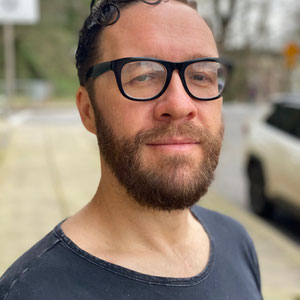

Evan Henshaw-Plath, known as Rabble, is a pioneering technologist and activist renowned for their work in social media and decentralized technologies. As the first employee and lead developer at Odeo, where they helped create Twitter, Rabble has been at the forefront of digital communication innovation. Their commitment to user-centric, community-driven platforms is evident in their work with nos.social, a decentralized social media app using the Nostr protocol, and their role in relaunching Causes.com to empower grassroots activism. They also helped create the Indymedia.org tech team, advancing grassroots media. A former researcher at the MIT Media Lab’s Center for Civic Media and an Edmund Hillary Fellow, Rabble combines technical expertise with a passion for political organizing and social justice, envisioning a future where digital communities thrive independently of centralized control, focusing on building digital commons-based communities.
Videos from the summit:
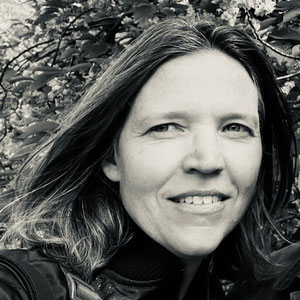

Building humane software from the inside. Planned Parenthood, WebMD, Civictech, Logitech.
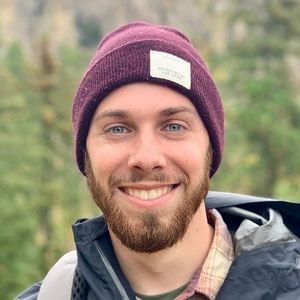

Matt creates social spaces where people and communities thrive. He champions a team culture that is collaborative, creative, and self-organizing. A veteran of decentralized web technology including Nostr, Secure Scuttlebutt, ActivityPub, and Tent.


Evan Henshaw-Plath, known as Rabble, is a pioneering technologist and activist renowned for their work in social media and decentralized technologies. As the first employee and lead developer at Odeo, where they helped create Twitter, Rabble has been at the forefront of digital communication innovation. Their commitment to user-centric, community-driven platforms is evident in their work with nos.social, a decentralized social media app using the Nostr protocol, and their role in relaunching Causes.com to empower grassroots activism. They also helped create the Indymedia.org tech team, advancing grassroots media. A former researcher at the MIT Media Lab’s Center for Civic Media and an Edmund Hillary Fellow, Rabble combines technical expertise with a passion for political organizing and social justice, envisioning a future where digital communities thrive independently of centralized control, focusing on building digital commons-based communities.
Videos from the summit:


Building humane software from the inside. Planned Parenthood, WebMD, Civictech, Logitech.


Matt creates social spaces where people and communities thrive. He champions a team culture that is collaborative, creative, and self-organizing. A veteran of decentralized web technology including Nostr, Secure Scuttlebutt, ActivityPub, and Tent.
Nos is a social media app built on the Nostr protocol with an emphasis on building a healthier social media commons for everyone including web of trust content moderation, a focus on interactions instead of engagement and more.


Evan Henshaw-Plath, known as Rabble, is a pioneering technologist and activist renowned for their work in social media and decentralized technologies. As the first employee and lead developer at Odeo, where they helped create Twitter, Rabble has been at the forefront of digital communication innovation. Their commitment to user-centric, community-driven platforms is evident in their work with nos.social, a decentralized social media app using the Nostr protocol, and their role in relaunching Causes.com to empower grassroots activism. They also helped create the Indymedia.org tech team, advancing grassroots media. A former researcher at the MIT Media Lab’s Center for Civic Media and an Edmund Hillary Fellow, Rabble combines technical expertise with a passion for political organizing and social justice, envisioning a future where digital communities thrive independently of centralized control, focusing on building digital commons-based communities.
Videos from the summit:


Building humane software from the inside. Planned Parenthood, WebMD, Civictech, Logitech.


Matt creates social spaces where people and communities thrive. He champions a team culture that is collaborative, creative, and self-organizing. A veteran of decentralized web technology including Nostr, Secure Scuttlebutt, ActivityPub, and Tent.


Evan Henshaw-Plath, known as Rabble, is a pioneering technologist and activist renowned for their work in social media and decentralized technologies. As the first employee and lead developer at Odeo, where they helped create Twitter, Rabble has been at the forefront of digital communication innovation. Their commitment to user-centric, community-driven platforms is evident in their work with nos.social, a decentralized social media app using the Nostr protocol, and their role in relaunching Causes.com to empower grassroots activism. They also helped create the Indymedia.org tech team, advancing grassroots media. A former researcher at the MIT Media Lab’s Center for Civic Media and an Edmund Hillary Fellow, Rabble combines technical expertise with a passion for political organizing and social justice, envisioning a future where digital communities thrive independently of centralized control, focusing on building digital commons-based communities.
Videos from the summit:


Building humane software from the inside. Planned Parenthood, WebMD, Civictech, Logitech.


Matt creates social spaces where people and communities thrive. He champions a team culture that is collaborative, creative, and self-organizing. A veteran of decentralized web technology including Nostr, Secure Scuttlebutt, ActivityPub, and Tent.
Open Library is an open source catalog of every book published.
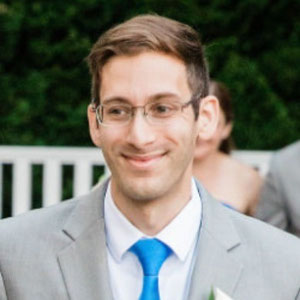

Mek runs the Internet Archive's Open Library, a non-profit website that helps patrons across the globe access millions of digital library books for free. He previously co-founded two tech startups, one which was acquired by Hyperink, a YCombinator-backed digital publisher. Since 2022 he has been an affiliate at the Berkman Klein Center, integrating his experiences across computer science, entrepreneurship, and digital archives to answer how new technologies and policies may enable libraries to better serve a modern world where patrons turn to screens for answers.


Mek runs the Internet Archive's Open Library, a non-profit website that helps patrons across the globe access millions of digital library books for free. He previously co-founded two tech startups, one which was acquired by Hyperink, a YCombinator-backed digital publisher. Since 2022 he has been an affiliate at the Berkman Klein Center, integrating his experiences across computer science, entrepreneurship, and digital archives to answer how new technologies and policies may enable libraries to better serve a modern world where patrons turn to screens for answers.
Open Source Observer (source) is a free analytics suite that helps funders measure the impact of open source software contributions to the health of their ecosystem.
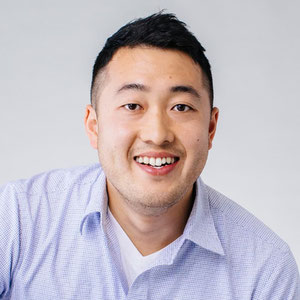

Raymond Cheng is a software engineer, entrepreneur, research scientist, open source contributor, and adjunct professor, who is passionate about building technology that improves the lives and freedoms of Internet users. He has made contributions in a wide range of areas in distributed systems and security, including data privacy, secure computing, blockchains, and scalable network systems.
Raymond has started multiple projects that are used by millions of people, including co-founding security company Oasis Labs, and creating a networking project that was productionized by Google in to Outline. His work has been recognized in top publications and conferences around the world, including Forbes, Wired, WSJ, Time, and NBC. Raymond obtained his PhD in Computer Science from the University of Washington, and graduated from MIT with degrees in Physics (Bachelor of Science), Electrical Engineering and Computer Science (Bachelor of Science and Master of Engineering).


Raymond Cheng is a software engineer, entrepreneur, research scientist, open source contributor, and adjunct professor, who is passionate about building technology that improves the lives and freedoms of Internet users. He has made contributions in a wide range of areas in distributed systems and security, including data privacy, secure computing, blockchains, and scalable network systems.
Raymond has started multiple projects that are used by millions of people, including co-founding security company Oasis Labs, and creating a networking project that was productionized by Google in to Outline. His work has been recognized in top publications and conferences around the world, including Forbes, Wired, WSJ, Time, and NBC. Raymond obtained his PhD in Computer Science from the University of Washington, and graduated from MIT with degrees in Physics (Bachelor of Science), Electrical Engineering and Computer Science (Bachelor of Science and Master of Engineering).
Come try out eQualitie's suite of censorship circumvention tools! Ouisync provides secure peer to peer file synchronization. Popular censored web content is crawled on a recurring basis, stored in Ouinet's decentralized cache, mirrored on eQ-owned servers around the world, and accessed via the Ceno Browser Android app. Content (both web content and other files, such as APKs) can further be shared with the peer-to-peer Ouisync app for secure cross-platform file syncing and storage. In the event of a total national network shutdown, eQualitie has also developed tools for distributing payloads over satellite TV.
Github
Gitlab
Organization: eQualitie
eQualitie creates decentralized internet services in support of a more equal and equitable network. Our solutions are open source, battle proven and developed in mind of our values. Everyday, they enable freedom of association for millions of people online.
Jenny has worked alongside organizations to build human and communications infrastructure, joining the eQualitie team in 2020 as Project Manager and Product Owner of Ceno Browser, Ouinet and Ouisync. She is passionate about connecting grassroots communities and global initiatives rooted in the shared struggle to reclaim the commons, create public spheres through the cultivation of open spaces, and enable direct democracy through principles of federation and open source or Read/Write culture. Toward the realization of these values, she has co-founded and stewarded three Oakland, California nonprofits: Sudo Room, Omni Commons, and Sudo Mesh. Her work experience spans many fields, including digital anthropology, IT project management, community organizing, and grassroots activism.
Jenny has worked alongside organizations to build human and communications infrastructure, joining the eQualitie team in 2020 as Project Manager and Product Owner of Ceno Browser, Ouinet and Ouisync. She is passionate about connecting grassroots communities and global initiatives rooted in the shared struggle to reclaim the commons, create public spheres through the cultivation of open spaces, and enable direct democracy through principles of federation and open source or Read/Write culture. Toward the realization of these values, she has co-founded and stewarded three Oakland, California nonprofits: Sudo Room, Omni Commons, and Sudo Mesh. Her work experience spans many fields, including digital anthropology, IT project management, community organizing, and grassroots activism.
Peersky Browser (source): Surf, Communicate, and Publish on the DWeb Offline is a versatile P2P web browser enabling users to seamlessly navigate, interact, and create content on decentralized networks without relying on traditional internet infrastructure. Designed for a broad audience, it empowers users to maintain digital autonomy, enhances privacy, and promotes accessible technology across diverse and often marginalized communities.
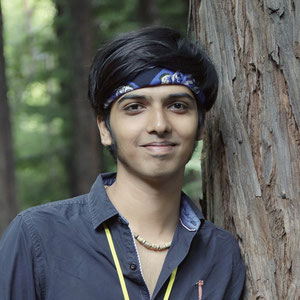

Akhilesh is a hacker and artist who enjoys building decentralized tools that contribute to a more resilient, accessible, and user-empowered internet.
He is the founder of P2P Labs, an open-source organization focused on building software that leverages various p2p protocols. One of the main projects is Peersky, a minimal p2p web browser.
He is working with the Distributed Press team as a software developer on Social Inbox, a tool that integrates social interaction capabilities into websites on the decentralized web, and Social Reader, a P2P and offline ActivityPub client for reading and following microblogs on the Fediverse.
He was a DWeb Fellow in 2023.
He will be starting his Master’s in Computer Science degree this fall at UC Santa Cruz.
Videos from the summit:


Akhilesh is a hacker and artist who enjoys building decentralized tools that contribute to a more resilient, accessible, and user-empowered internet.
He is the founder of P2P Labs, an open-source organization focused on building software that leverages various p2p protocols. One of the main projects is Peersky, a minimal p2p web browser.
He is working with the Distributed Press team as a software developer on Social Inbox, a tool that integrates social interaction capabilities into websites on the decentralized web, and Social Reader, a P2P and offline ActivityPub client for reading and following microblogs on the Fediverse.
He was a DWeb Fellow in 2023.
He will be starting his Master’s in Computer Science degree this fall at UC Santa Cruz.
Videos from the summit:
Our film archives collects, maintains, and disseminates moving images to the world. We steward and preserve the world's memory as recorded in homemade films and other films not collected in other archives. FFDW supports these thousands of memories being digitized and backed up to the blockchain.
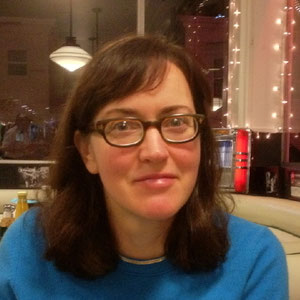

Megan Prelinger is co-director of the Prelinger Archives, an historical film archives, and the eponymous Library, a research library in San Francisco. She is also the author of two books on the history of technology and a naturalist and educator.
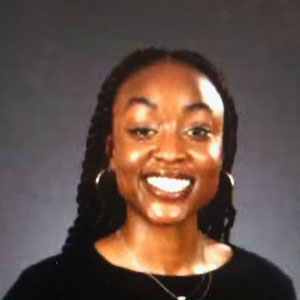

Autumn Armstrong is the 2024 Pathways Intern at Prelinger Archives, an internship sponsored by the Association of Moving Image Archives. Autumn is completing a BA in Film at UC Berkeley.
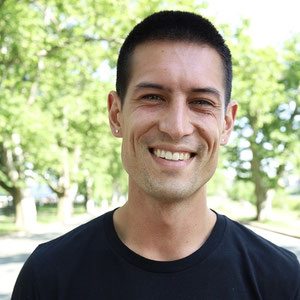

Brian Eggert is the Decentralized Web Specialist at Prelinger Archives.


Megan Prelinger is co-director of the Prelinger Archives, an historical film archives, and the eponymous Library, a research library in San Francisco. She is also the author of two books on the history of technology and a naturalist and educator.


Autumn Armstrong is the 2024 Pathways Intern at Prelinger Archives, an internship sponsored by the Association of Moving Image Archives. Autumn is completing a BA in Film at UC Berkeley.


Brian Eggert is the Decentralized Web Specialist at Prelinger Archives.


Holmes Wilson is an Internet freedom activist whose work mixes mass mobilization and software tools. He is a co-founder and board member of Fight for the Future, the activism organization that was instrumental in defeating the infamous US site-blocking laws SOPA/PIPA, fighting for net neutrality rules in the US and Europe, opposing law enforcement crypto backdoors, and more recently challenging the use of face recognition tech by US law enforcement and products like Amazon Ring. He also previously co-founded Miro, a free software video player based on Bittorrent and RSS, and was a campaign manager at the Free Software Foundation. He’s currently building Quiet, a local-first, peer-to-peer team chat app. Quiet differs from Slack, Discord, Matrix, and Signal in that it does not require that users trust a third party server or run their own. Instead, data syncs directly between clients over the Tor network, with no server required.
Videos from the summit:
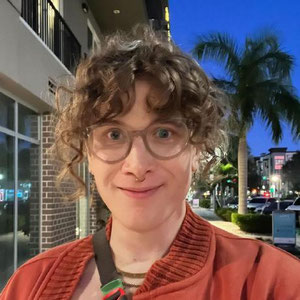

Isla is a software engineer at Quiet. Previously, and in parallel, she has been working on a distributed alerting and mutual aid system for communities facing gender-based oppression.


Holmes Wilson is an Internet freedom activist whose work mixes mass mobilization and software tools. He is a co-founder and board member of Fight for the Future, the activism organization that was instrumental in defeating the infamous US site-blocking laws SOPA/PIPA, fighting for net neutrality rules in the US and Europe, opposing law enforcement crypto backdoors, and more recently challenging the use of face recognition tech by US law enforcement and products like Amazon Ring. He also previously co-founded Miro, a free software video player based on Bittorrent and RSS, and was a campaign manager at the Free Software Foundation. He’s currently building Quiet, a local-first, peer-to-peer team chat app. Quiet differs from Slack, Discord, Matrix, and Signal in that it does not require that users trust a third party server or run their own. Instead, data syncs directly between clients over the Tor network, with no server required.
Videos from the summit:


Isla is a software engineer at Quiet. Previously, and in parallel, she has been working on a distributed alerting and mutual aid system for communities facing gender-based oppression.
The Seattle Community Network deploys open-source LTE networks using the open source software package open5gs and commodity radio gear. We provide free internet service to residents of low-income neighborhoods, with DIY towers based at community centers, schools, and libraries. The demo we provide here includes SIM cards and eSIMs on our network, which can be used on newer phones that support the Citizens' Broadband Radio Service (CBRS) frequency band.
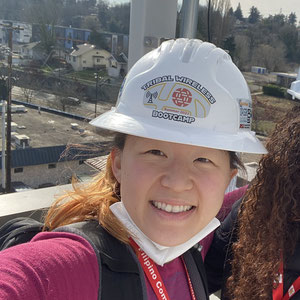

Esther is a PhD student in Computer Science at the University of Washington. Her research focuses on community networks in both rural remote and urban contexts, and especially how communities of practice can build and sustain technical infrastructures. She has helped install community networks in the Philippines, Mexico, Tanzania, and various states around the US. She is currently a lead organizer and installer for the Seattle Community Network, which seeks to build community-owned and maintained Internet access infrastructure to support digital equity in Seattle and Tacoma. She serves as a Director at the Local Connectivity Lab, a 501(c)(3) nonprofit focusing on technology research, deployment, and teaching in support of community networks around the world. In her free time, she is an avid jazz singer and plays with a band called Django Junction in Seattle.
Videos from the summit:
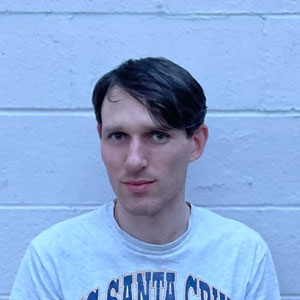

Cody lives in Seattle and likes networks and distributed systems. He volunteers with the Connections Museum in Seattle repairing antique telephone switches and giving tours to the public. He recently assisted Shadytel build an analog phone network serving campsites at ToorCamp 2022. He's also an active volunteer with Seattle Community Network.
Videos from the summit:
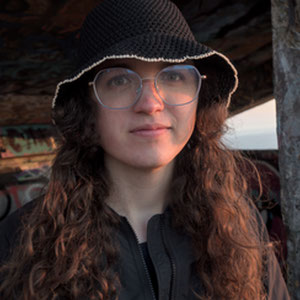

Zoe is a software consultant, open source advocate, and conference organizer. Her work often focuses on underserved communities. She is currently working to re-start Oakland's Sudomesh network. Away from tech, her hobbies include photography, fixing bicycles, and flying and maintaining experimental aircraft.


Esther is a PhD student in Computer Science at the University of Washington. Her research focuses on community networks in both rural remote and urban contexts, and especially how communities of practice can build and sustain technical infrastructures. She has helped install community networks in the Philippines, Mexico, Tanzania, and various states around the US. She is currently a lead organizer and installer for the Seattle Community Network, which seeks to build community-owned and maintained Internet access infrastructure to support digital equity in Seattle and Tacoma. She serves as a Director at the Local Connectivity Lab, a 501(c)(3) nonprofit focusing on technology research, deployment, and teaching in support of community networks around the world. In her free time, she is an avid jazz singer and plays with a band called Django Junction in Seattle.
Videos from the summit:


Cody lives in Seattle and likes networks and distributed systems. He volunteers with the Connections Museum in Seattle repairing antique telephone switches and giving tours to the public. He recently assisted Shadytel build an analog phone network serving campsites at ToorCamp 2022. He's also an active volunteer with Seattle Community Network.
Videos from the summit:


Zoe is a software consultant, open source advocate, and conference organizer. Her work often focuses on underserved communities. She is currently working to re-start Oakland's Sudomesh network. Away from tech, her hobbies include photography, fixing bicycles, and flying and maintaining experimental aircraft.
The SecureDrop Workstation (source) based on Qubes OS is the next generation user experience for journalists managing SecureDrop whistleblower submission systems. It provides journalists and NGOs with a safe environment in which they can receive and review submissions from whistleblowers and respond to sources.
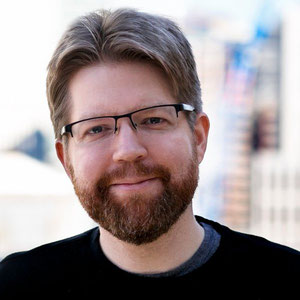

Erik is the vice president of engineering at Freedom of the Press Foundation. Prior to joining FPF, Erik worked on many free and open projects. Chief among them was the Wikimedia Foundation, where he was a volunteer, board member, and executive, and helped build the organization into the free culture powerhouse it is today.


Erik is the vice president of engineering at Freedom of the Press Foundation. Prior to joining FPF, Erik worked on many free and open projects. Chief among them was the Wikimedia Foundation, where he was a volunteer, board member, and executive, and helped build the organization into the free culture powerhouse it is today.
Social Layer App (source) is a modular community infrastructure that integrates various decentralized protocols. It enables the management of community activities, spaces, members, and identities, and supports the creation, growth, sustainability, and connectivity of pop-up cities, intentional communities, and cultural hubs worldwide.


Jiang is a distributed system researcher building DDNX, the decentralized DNS resolution protocol, which use DNSSEC to generate cryptographic proof of domain ownership, and have it verified on blockchain system. So that we can have fully verified on-chain identity of domain names, and create proofs for the owner of the websites. Jiang is also interested in topics like peer-to-peer technology, distributed system, capability-based security and functional programming.
Jiang lives in Dali, China, where he is building organic communities. He organized Creator Basic Income (CBI), which is a basic income program to support creators or artists that can contribute to the community.
Jiang was also the organizer of Papers We Love Beijing Chapter.
Videos from the summit:


Jiang is a distributed system researcher building DDNX, the decentralized DNS resolution protocol, which use DNSSEC to generate cryptographic proof of domain ownership, and have it verified on blockchain system. So that we can have fully verified on-chain identity of domain names, and create proofs for the owner of the websites. Jiang is also interested in topics like peer-to-peer technology, distributed system, capability-based security and functional programming.
Jiang lives in Dali, China, where he is building organic communities. He organized Creator Basic Income (CBI), which is a basic income program to support creators or artists that can contribute to the community.
Jiang was also the organizer of Papers We Love Beijing Chapter.
Videos from the summit:
Goblins (source) provides an intuitive security model, automatic local transactions for locally synchronous operations, and an easy to use and efficient asynchronous programming interface for encapsulated objects which can live anywhere on the network. Its networking model abstracts away these details so the programmer can focus on object programming rather than protocol architecture. Goblins also integrates powerful distributed debugging tools, and a process persistence and upgrade model which respects its security fundamentals.
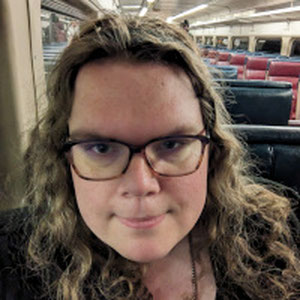

Christine has devoted her life to advancing user freedom. Realizing that the federated social web was fractured by a variety of incompatible protocols, she co-authored and shepherded ActivityPub's standardization. She has also contributed to many other free and open source projects, including co-founding MediaGoblin.
Christine established the open source Spritely Project to solve known problems in existing centralized and decentralized social media platforms and to re-imagine the way we build networked applications - work that now continues here at the Spritely Institute under her guidance as Executive Director.
Videos from the summit:
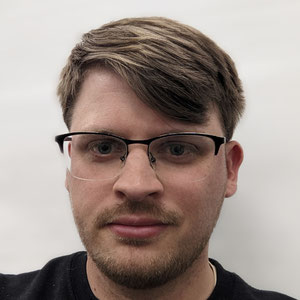

David Thompson is a software engineer and free and open source software advocate who enjoys writing software at every level of the stack. Dave is one of Spritely's earliest engineers and today serves as Spritely's CTO, leading Spritely's engineering team, overseeing Spritely's architecture, and writing plenty of Spritely's core code.


Christine has devoted her life to advancing user freedom. Realizing that the federated social web was fractured by a variety of incompatible protocols, she co-authored and shepherded ActivityPub's standardization. She has also contributed to many other free and open source projects, including co-founding MediaGoblin.
Christine established the open source Spritely Project to solve known problems in existing centralized and decentralized social media platforms and to re-imagine the way we build networked applications - work that now continues here at the Spritely Institute under her guidance as Executive Director.
Videos from the summit:


David Thompson is a software engineer and free and open source software advocate who enjoys writing software at every level of the stack. Dave is one of Spritely's earliest engineers and today serves as Spritely's CTO, leading Spritely's engineering team, overseeing Spritely's architecture, and writing plenty of Spritely's core code.
Sutty (source) is a content manager and hosting platform for resilient websites, aimed at human rights, lgbttqia+, indigenous organizations, grassroots media and education collectives and activists, co-ops, NGOs. Our goal is keep building a space with them to safely distribute their voices.
Thanks to our integration with Distributed Press, now those websites can be shared across both the dweb and the fediverse, enabling a wider and collaborative network of content distribution!
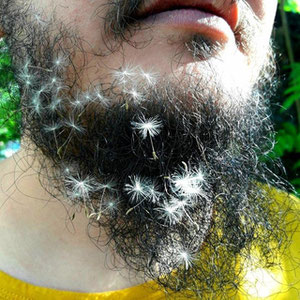

My work and activism is focused on investigating, re-thinking, adapting, modifying and implementing resilient technologies, specially autonomous, collectivelly managed infrastructure.
I've been involved in free software and hacktivist communities since 2007, with a special interest in the intersection of technology and grassroots organization. This lead me to work on technology development from intersectional, trans-feminist, anti-opressive, decolonial, grassroots perspectives, along with many friends and folks.
In the last six years I've been working almost exclusively on resilient web sites using Jekyll and developing a platform for updating and hosting them called Sutty.


My work and activism is focused on investigating, re-thinking, adapting, modifying and implementing resilient technologies, specially autonomous, collectivelly managed infrastructure.
I've been involved in free software and hacktivist communities since 2007, with a special interest in the intersection of technology and grassroots organization. This lead me to work on technology development from intersectional, trans-feminist, anti-opressive, decolonial, grassroots perspectives, along with many friends and folks.
In the last six years I've been working almost exclusively on resilient web sites using Jekyll and developing a platform for updating and hosting them called Sutty.
TLSNotary is an open-source protocol that can verify the authenticity of TLS data while protecting privacy. If you're looking for a way to make data portable without compromising on security, check out the protocol and integrate it into your applications!
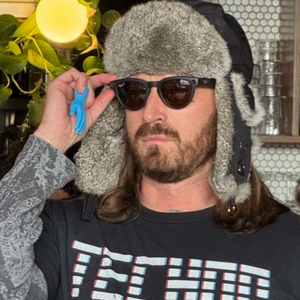

ryan has a background in authorization and authentication across academia & industry. he's worn all the hats: black, white, jester, cto, etc. He cares about the next generation of jedis: making sure they can experience and build on platforms that are something like the web used to be 🆓
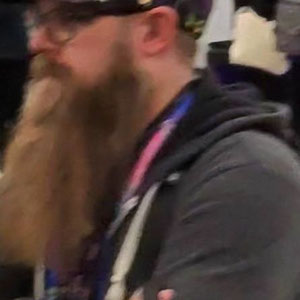

Tyler has a background in applied research and helps run and contributes to PSE


Tanner is on the tlsnotary client team.


ryan has a background in authorization and authentication across academia & industry. he's worn all the hats: black, white, jester, cto, etc. He cares about the next generation of jedis: making sure they can experience and build on platforms that are something like the web used to be 🆓


Tyler has a background in applied research and helps run and contributes to PSE


Tanner is on the tlsnotary client team.
Unmio - Decentralized CRM solution for organizations that work with farm workers and other underserved individuals.
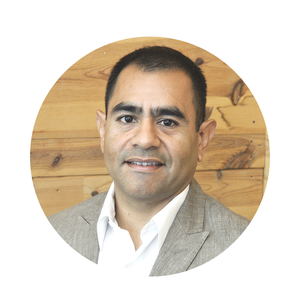

Jesus Torres brings decades of experience working at the intersection of entertainment, technology, and US Latino culture. He is the co-founder and CEO of Entidad, a social impact startup helping organizations scale their reach and impact with underserved communities.


Jesus Torres brings decades of experience working at the intersection of entertainment, technology, and US Latino culture. He is the co-founder and CEO of Entidad, a social impact startup helping organizations scale their reach and impact with underserved communities.
viaPrize.org is a crowdfunded prize platform for sharing, funding, and building ideas.
A prize includes three roles:
Proposer - Comes up with a project
Funders - Crowdfund the prize
Contestants - Build the project and win the prize
Proposers are awarded for their ideas and can easily recruit contributors
Funders can be refunded if no one successfully builds the project
Contestants are empowered to be entrepreneurs as they win prizes
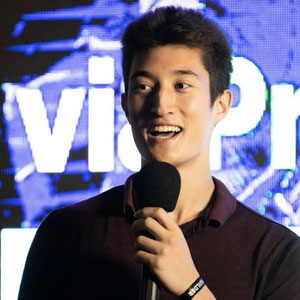

Noah Chon Lee (noahchonlee.com) is the founder of viaprize.org, a platform for crowdfunding public goods. He began his career at the age of ten as a third generation circus performer and since then has led nonprofit projects with indigenous communities in the Amazon jungle, trained with the Marine Corps as a midshipman, worked for an AI startup, and now focuses on projects that may make a world in which we turn to peer to peer collaboration rather than bureaucracy to solve collective problems.
Videos from the summit:


Noah Chon Lee (noahchonlee.com) is the founder of viaprize.org, a platform for crowdfunding public goods. He began his career at the age of ten as a third generation circus performer and since then has led nonprofit projects with indigenous communities in the Amazon jungle, trained with the Marine Corps as a midshipman, worked for an AI startup, and now focuses on projects that may make a world in which we turn to peer to peer collaboration rather than bureaucracy to solve collective problems.
